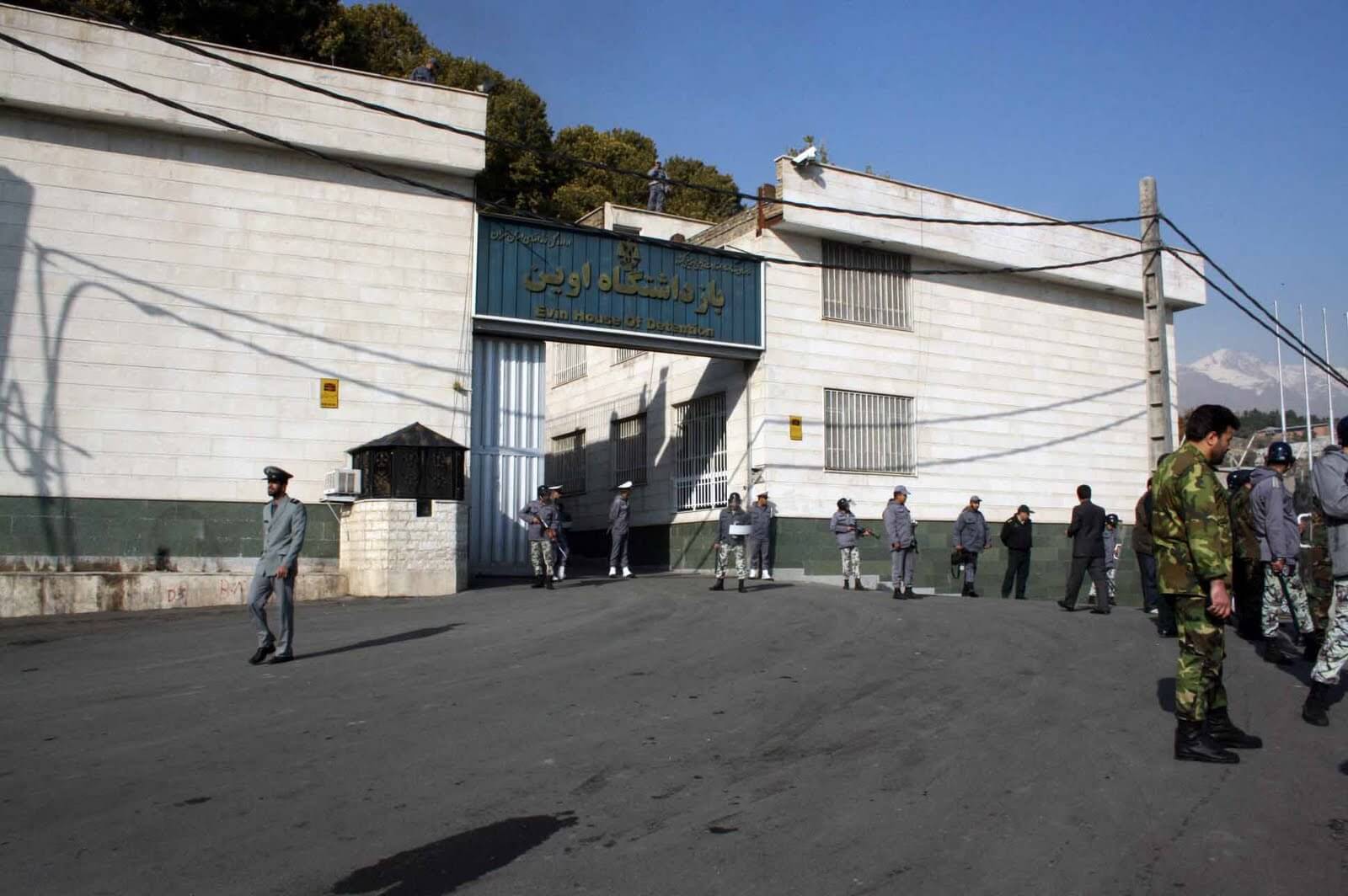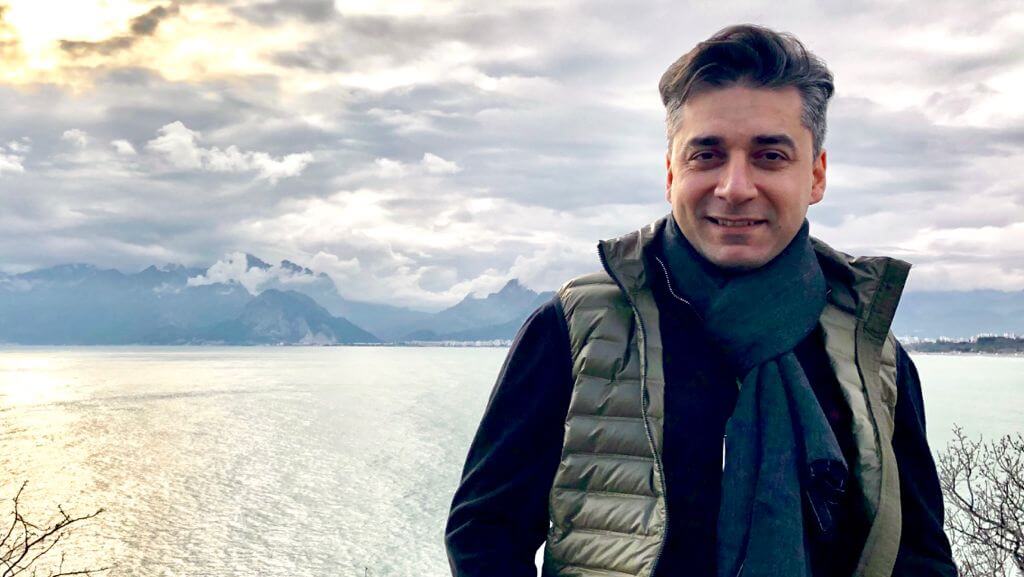Just a few weeks ago, I received a letter from a reader asking how Farshid was doing. She, as well as several others, are still praying for him, even though it has been five and a half years since he was released from prison in Iran.
Farshid was a leader in the underground church in Iran. But his work came at a high price. He spent five years in prison from 2010 - 2015. Not only was Farshid in solitary confinement, but his wife left him while he was in prison.
He tells us via a video link: "I'm fine. Since January my daughter has been living with me. It has changed my life. We are trying to get to know each other. I hadn't seen her face to face for 10 years. I'm so grateful."
On the screen in front of me, I see a man who is happy, despite prison and a difficult family situation. "I have a long list of 42 things I'm grateful for," he says. "I'm grateful for being able to look at myself in the mirror, which I couldn't do in solitary confinement. I can freely go to the bathroom, which I couldn't do in prison, I'm grateful to be able to sleep in a dark room and not in light".
He turns his camera and shows the list on the wall, which he calls the gratitude wall.
How do you forgive people who have hurt you?
"The way I look at it," Farshid replies, "is that I chose the disease. Some people get cancer, which is a suffering that comes from outside and is not their own choice. Jesus said: No one takes it (my life, ed.) from me, but I put it there by myself (John 10:18). I knew it would cost something to lay down my life for Jesus. Peter says: Dear ones, don't be surprised at the ordeal you're going through (1 Peter 4:12) When you accept the persecution, it is easy to forgive."

"I try to tune my life to this tone where Jesus said: Father forgive them, for they know not what they do. Also those who caused a fracture in my foot, those who helped destroy my marriage. In the parable of the indebted servant, a king forgives a man 10,000 talents, but the same man would not forgive a fellow servant's debt to himself of only 100 dinars. We must forgive others because Jesus has forgiven us of our sin. His forgiveness is overwhelming and His grace is new every morning."
What was the hardest part of prison?
"The hardest part was not being able to be with my family. My son cried every Father's Day and I couldn't be there. My daughter suffered and is marked today. That was the hardest part. I had to deal with a lot in the family, but I couldn't be there for them."
My son cried every Father's Day and I couldn't be there - Farshid Fathi
Did you feel the presence of God?
"Yes, a lot. I sometimes experienced God hugging me when I was lying in bed in prison. I remember once in solitary confinement, the presence of the Lord was strong. I was singing in silence, because there was no sound allowed. I once danced in my dirty 2 x 2 meter cell. The guard opened the door to see if I wanted to escape. I looked at him with a big smile and asked if he was okay. He replied: It looks like you are more than fine. When I walk through the dark night, I feel God's presence stronger than when things are going well. He was so faithful."
When I walk through the dark night, I experience God's presence stronger than when things are going well
- Farshid Fathi
"I have never been disappointed in God. Often God doesn't answer my prayer or He answers in a way I didn't expect. For example, I haven't seen my son for 10 years, but I've never been disappointed in God, but maybe there's something wrong with me not having this experience," says Farshid with a smile.
What are you working on now?
"Currently, I am mentoring pastors serving Iranian Christians. I have a heart for empowering pastors as they are often alone and don't have a pastor to talk to about burnout and grief. I also have a heart for broken people. God works through broken people, and we see the fingerprints of Jesus when we see how he has healed broken people."
Farshid also says that he serves non-Iranians. In doing so, he wants to be a role model for the many new Christian Iranian missionaries to reach non-Persian peoples with the gospel.
What did it mean when people prayed for you in prison?
"I didn't experience loneliness in prison. I was alone, but not lonely, and I think it was because of prayer. No one can do it alone. That's why the prayers of others mean a lot to me.
I sometimes felt cool, joyful winds passing through my heart. Could it be because someone was praying for me? Please continue to pray that I may see my son and that God may give me wisdom. We must be light and fulfill our calling in this darkening world."
Farshid Fathi and Denmark
In 2004, donors to the Danish European Mission helped bring emergency aid to the victims of the Bam earthquake in Iran. Farshid helped distribute this aid. In 2005, Farshid visited Denmark and had the pleasure of speaking at the Bible campsite Sarons Slette and visiting Tivoli Gardens together with Henrik Ertner Rasmussen, then Secretary General of the Danish European Mission.
Many Danes prayed for him while he was in prison and were informed of developments in his case through the Danish European Mission.
Facts: Government persecution of Christians in Iran
- Hundreds of Christians have been arrested and have been imprisoned without trial for months.
- In 2020, 115 Christians were arrested for being Christians or participating in Christian activities.
- During interrogations, some Christians are pressured to renounce their faith or cease Christian work.
- Four people were denied access to higher education, one married couple was denied the right to adopt and 22 were denied work because they were Christians.
- Christians are accused of endangering national security, spreading Zionism, promoting Zionist Christianity and propagandizing against the regime.
- In 2020, 6 Christians were sentenced to 5 years in prison, while one was sentenced to 10 years in prison.
- Source of facts: Danish European Mission's partner Middle East Concern






